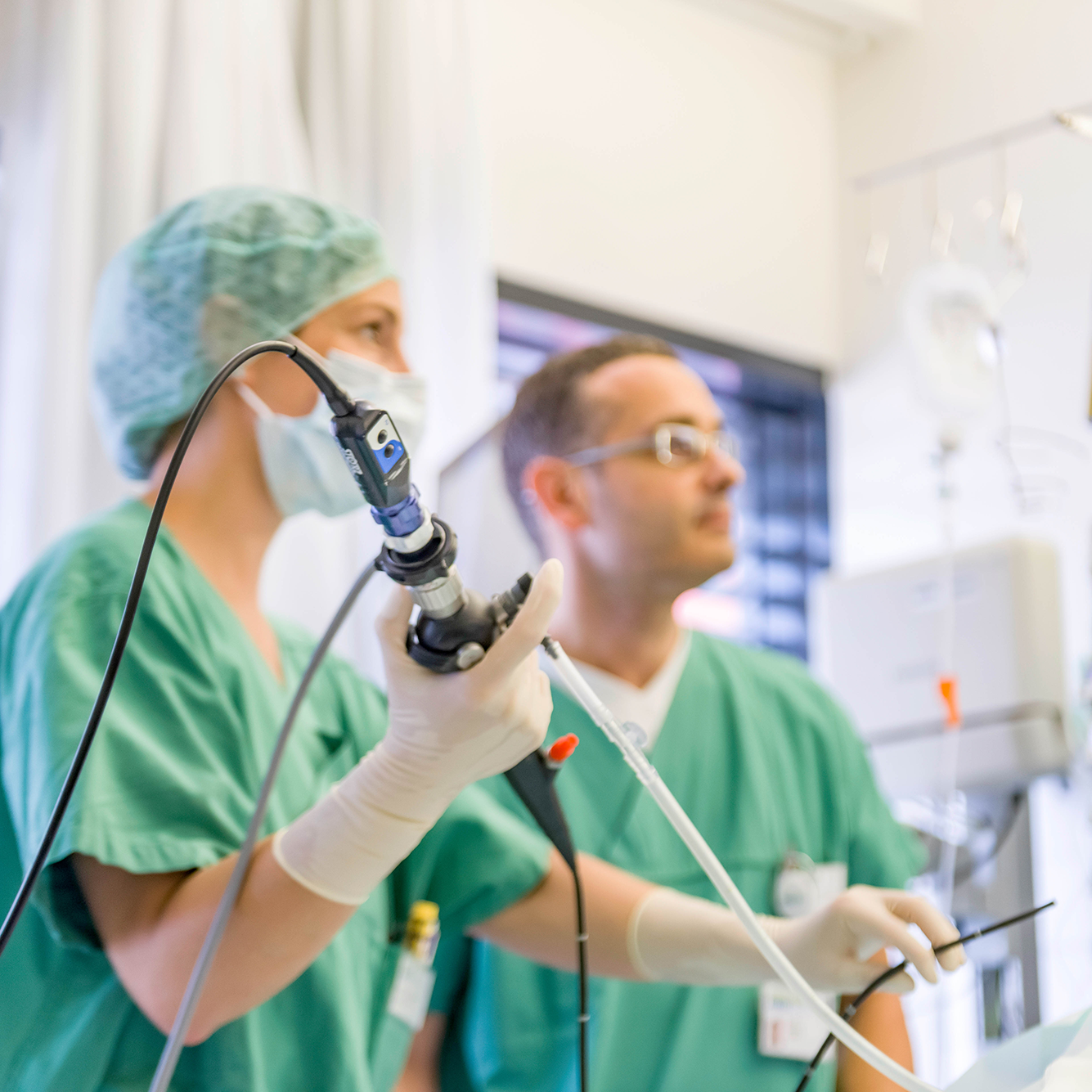
Use Case ASIC
Algorithmic Surveillance in Intensive Care
Patients in intensive care units are closely monitored. With the help of artificial intelligence, the huge amounts of resulting data have enormous potential to produce new scientific knowledge and optimize individual patient care in intensive care medicine.

Use Case ASIC
Efficient diagnostics and guideline-based therapy for Acute Respiratory Distress Syndrome (ARDS) via the ASIC App
Optimization of care for patients with ARDS and COVID-19
Continuous evaluation of collected patient data in intensive care units
Participation of the University Hospitals Bonn, Düsseldorf, Halle, Hamburg, Jena, Leipzig and Rostock under the leadership of the University Hospital RWTH Aachen
ASIC App warns of acute respiratory failure
Despite clear criteria for diagnosing Acute Respiratory Distress Syndrome (ARDS), the life-threatening disease, in which the lungs can no longer adequately supply the body with oxygen, is seldom detected. This particularly affects early stages of ARDS, which often remain undetected or delayed amongst the volume of accumulated clinical data. Thus, despite advances in therapy, 40 percent of all ARDS patients still die. The SMITH Consortium aims to help physicians increase the rate of diagnosis of the disease, improve therapy and reduce the incidence of life-threatening complications.
Under the leadership of the University Hospital Aachen, a specially developed smartphone app for iOS and Android-based devices is being implemented in collaboration with seven other university hospitals. The ASIC App ensures continuous ARDS monitoring of intensive care patients as well as the visualization of treatment guidelines. For this purpose, the attending physicians carry a mobile device in their coat pocket, which alerts them to the possible presence of ARDS in the event of changes in key values.
In light of the COVID-19 pandemic, the Use Case ASIC highlights the role that medical informatics will have in the future for research and improving care. It became clear at a early stage that a majority of individuals with particularly severe COVID-19 develop ARDS, which has a massive impact on treatment outcomes. The use of the ASIC App can optimize the care of COVID-19 patients through early ARDS diagnosis and therapy. A transfer of the procedures applied in the Use Case ASIC to pathologies such as sepsis or acute renal failure is imaginable in the future.
Using the potential of routine clinical data
In addition, routine data continuously collected in intensive care units will be stored in anonymized form for the long term and made available for research. Using artificial intelligence methods, the development of a virtual patient model is planned. The model will simulate different health states of intensive care patients and predict complications such as ARDS. The goal is a self-learning computer system for clinical research and education. In parallel, a diagnostic expert system will be developed to assess the risk of potential ARDS for individual patients based on clinical care data.
For the development of these systems, the first German cross-site, anonymous research database in intensive care medicine is being established and maintained in the participating Data Integration Centers (DIC). The DICs extract patient data from the primary health care systems, anonymize them and convert them into an interoperable format. In the future, this data can be used to generate new scientific findings and improve individual patient care.
ASIC was funded by the German Federal Ministry of Education and Research (BMBF) from 01.01.2018 to 31.12.2023 as part of the SMITH Consortium.

“I am convinced that the data in the Use Case ASIC have a huge potential to help bring more patients back to life using artificial intelligence. With every organ failure, the ultimate goal is to gain time: the earlier we make the diagnosis, the sooner we can initiate a therapy within guidelines and the more patient lives we can save.”
Prof. Dr. Gernot Marx, FRCA
Head of the ASIC Use Case
Head of the Digital Hub DISTANCE
Spokesman of the Executive Board of the Innovation Center Digital Medicine (IZDM),
Head of the Department for Intensive Care Medicine | University Hospital RWTH Aachen

